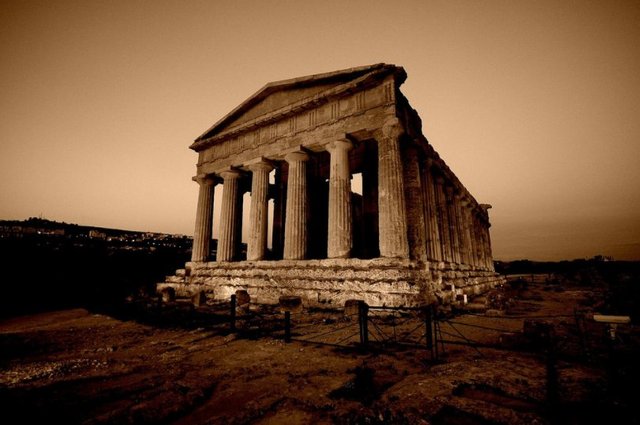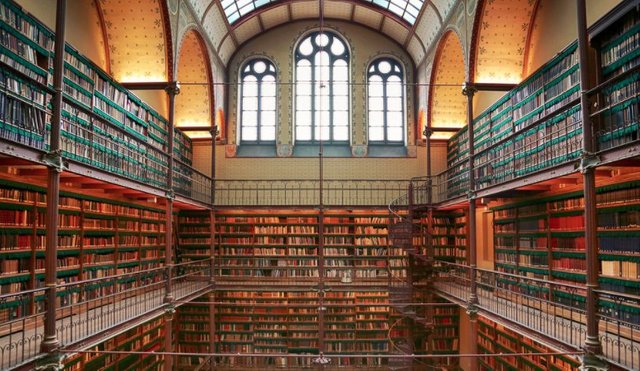The Importance of HISTORY as a Discipline of Study

Everything in the social world has a history. The academic discipline is divided into numerous subdivisions such as political history, social history, economic history, cultural history etc...which can make the topic quite daunting. Regardless, it is important to distinguish between two important aspects of the concept of history:
- History understood as things of the past: events, processes, conditions, persons. These are the objects of study of the historian.
- History understood as the methods, concepts and theories historians use when they study the past.

- What happened?
- When did it happen?
- How did it happen?
- Why did it happen?
- What consequences did it have?

Criticism of Sources:
As the reality historians want to understand and investigate no longer exists, he or she cannot, like for instance social scientists, sociologists and anthropologist, use methods such as interviews, surveys, participant observation and focus groups to obtain information on a topic under investigation. Historians must rely on material or written sources generated in and “handed down” from the past. The written sources from which historians obtain information are usually divided into primary and secondary sources. Common to both is that they do not provide direct access to the reality under study. They are “witnesses” or “evidence” of past reality, not that reality itself. This means that historians must devote much of their time scrutinizing sources, or to use the proper methodological term, doing criticism of sources. Basically ‘criticism of sources’ means asking questions like:
- What is a source?
- For what purpose was a source created?
- By whom was it created?
- When and where was it created?
Within the limits of an introductory lecture it is not possible to enter deeply into the methodological discussions concerning the study and use of sources. If you want to know more about “criticism of sources” you must consult relevant theoretical literature. However, here is a link to a website that provides useful information on the difference between primary and secondary sources and, in addition, gives instruction on how you can use and critically reflect on the use of different sources in studies of your own.

Perspectives on history
Historians have different perspectives on history, that is, different views on what factors are important in history. Some historians have an actor-oriented perspective, maintaining that individuals (for instance: Lenin, Stalin, Hitler) and their decisions and actions play a decisive role. Others have a structural-oriented perspective focusing on the role of social, economic, political and other impersonal factors in history. Historians may also take an ‘idealist’ approach viewing ideas, ideologies and other value systems as the main driving forces in history (for instance: the spread of the ideas of Enlightenment caused the French revolution; the nationalist resurgence in non-Russian union republics caused the breakup of the Soviet Union).
Some perspectives on history are deterministic, meaning that history is seen as developing towards a certain goal. For instance, in the Marxist view, history inevitably moves towards a future goal: the communist society. Nationalist interpretations of history also have a deterministic vein: history is shaped by the destiny of the nation.
There are many other views and interpretations of history. The main thing to remember is that the past we learn about trough the mediation of different historians is something ontologically different from the “real” past. Thus, it is a good idea to study different interpretations of the past and what kind of evidence (sources) the different interpretation are based upon.
Why study history?
There are many good reasons to study history. Studying history provides us with knowledge of the past. It also gives us understanding of how our own and other peoples societies have been created. What happened in the past has an influence on what happens today and the past has an influence on the future. Studying history provides us with understanding of how different peoples and societies have solved different types of problems and conflicts in different periods of times. History is often politicized and instrumentalized by different actors in actual political processes and power battles. Studying history helps us understand important aspects of contemporary conflict dynamics.
how much truth, history is very important in education, I started to fall in love with the story when I went to my grandfather's house for lunch, he was a retired history teacher, he had a huge library in his house and he told me stories that I loved the crusades and how the Templars protected the Holy Grail, the truth so inspiring what you write, thanks for sharing!
Agreed. I became addicted even from high school. The subject and diversity of themes kept my initial interest. In college I majored in Anthropology and in graduate school I covered a year specialization in Russian and Caucasus history which is what fascinates me the most. Now I read a lot of contemporary and US foreign policy works. There is an endless amount of information. It also has so much relevance to modern issues as nothing we are experiencing has not occurred previously in history.
Yup as Cicero said, "To be ignorant of history is to remain always a child."
Indeed. Since the subject is least regarded especially when it is most relevant, we have a nation steeped in ignorance and unable to make rational decisions, being swayed by political rhetoric and partisan blind affiliation. nevertheless, it helps the rulers remain in power and effectively controlling the unwashed. What times we live in....
Unfortunatly true, it always saddened me how poorly history was taught in my school. They somehow managed to skip over the greatest of achievments and turn the most inspiring stories of our past into the most boring. I think Huxley was right when he said "That men do not learn very much from the lessons of history is the most important of all the lessons that history has to teach." but hopefully we can change that.
This is an interesting point and relevant criticism. You need inspiring instructors to teach this topic. Boredom can be overcome if students are taught history has direct impact on the contemporary. Those dates, events and names have bearing on present and future considerations. It needs an invigorating approach.
It is interesting that you label history (that is: the inquiry of the historian) to be a science. Surely, while even science struggles with proving 'facts', history is more akin to literature and philosophy and consciously so. I see history more as an art that uses sciences (anything from psychology to statistics) as tools to better know the human condition. Have you read Nietzsche's "On the uses and abuses of history for life"? I think you would find it most stimulating.